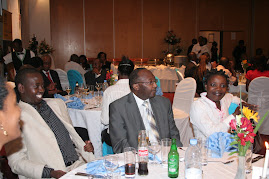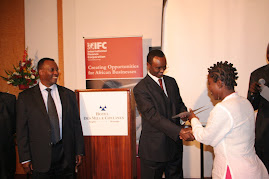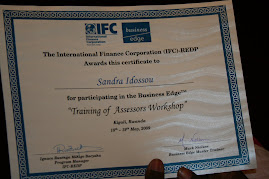Current state of customer service
http://newtimes.co.rw/index.php?issue=14550&article=6127&week=09By Sandra idossou

During the national retreat in Gisenyi two years ago government decided to seriously tackle the matter of poor service delivery in Rwanda. During that retreat, it was revealed that if service delivery was to improve in Rwanda, it could boost the country’s Gross Domestic Product (GDP) by as much as $40 million per annum by 2012.
President Kagame said that “Customer service remains highly problematic in private, public and civil society domains, something that is most certainly going to preoccupy us in the coming days, months and years.”
Two years down the road, after the various initiatives, can we boldly say that customer service has improved? Can we confirm that service providers treat customers better today? Can we say, for sure, that trainings offered have really impacted on the way people work and treat customers?
Obviously we cannot respond in the affirmative to all the above questions but we can all acknowledge the fact that there is, at least, a great sensitization campaign going on. The questions we rather have to ask ourselves are: Are we doing enough? Have all public and private institutions really embarked on this journey of world class service standards? Below is my personal analysis of the situation.
Importance of the media
Poor level of customer care in Rwanda is attributed to the lack of awareness by most of us. That is why the media has a paramount role in sensitizing the population. Our The New Times, Flash FM, Contact FM, Radio10 and many others need to be applauded for their commitment throughout these last two years.
The New Times, in particular, has dedicated a special column for customer care where different articles ranging from customer service management, human resources, sales and marketing, personal development to motivation are published every Monday.
But really as we want the entire service delivery population to understand the importance of such articles, then of course, more needs to be done. Adding to the articles, there should also be more radio and television shows, reports, sketches, dramas, videos on this topic on all news media in the country.
The role of other organizations
Two years ago, the government nominated a ten-member national steering committee mandated at rolling out a nationwide customer care campaign in both the public and private sectors. Government allocated about Rwf283 million ($500,000) for this two-year national campaign.
It is true that there have been interesting initiatives such as “Gira Ubupfura” campaign, the Rwanda Development Board (RDB) Awards, trainings for the hospitality and tourism industry, to the police, the immigration, among others but unfortunately this is not sufficient.
It is for this reason that all private and public organizations should support other initiatives such as the waiter’s race, vocational training centers, The ServiceMag, Radio talk shows, consumers associations, etc that aim at educating and empowering the Rwandan workforce.
Another good initiative that got a lot of positive feedback was The ‘Customer Care Handbook’ that was published eighteen months ago by the Private Sector Federation (PSF). Though this was an excellent educational tool in a simple English and Kinyarwanda version, this project couldn’t unfortunately continue as the author of these handbooks is yet to be paid.
Importance of mindset and positive attitudes
Attitudes and mindset still remain a big challenge for both the private and public sectors. Efforts still need to be done in making the population understand the benefits of treating customers well. Charles Swindoll, a great American preacher said: “We cannot change our past...we cannot change the fact that people will act in a certain way. We cannot change the inevitable.
The only thing we can do is play on the one string we have, and that is our attitude. I am convinced that life is 10 percent what happens to me and 90 percent of how I react to it.” We are in charge of our Attitudes
Managers have to be exemplary
Rwanda is privileged to have its president at the forefront of the campaign against poor customer service. It is rather unfortunate that some of the top managers, those who are supposed to inspire and motivate their teams, often, do nothing of what they preach. Improving customer service is not only asking employees to smile.
It needs international standards and mechanism, policies, practices and procedures that are service oriented. Top Managers need to be the change they want to see in their subordinates.
It’s everyone’s responsibility
As the cause of poor customer care is basically rooted down to negative attitude towards work and mindset, every single person needs to embark on this campaign. From the family, cell and sector levels, we all need to adopt better behaviors towards one another.
Customer care is an issue that concerns us all; it’s not only a government priority. We should all adopt every day positive attitudes. That is the only way we can improve. Let’s all remember that our attitude as a nation largely depends on our daily individual attitudes.
In conclusion, good service delivery is essential in all economies but, most especially, in Rwanda, that aims at becoming a service-based economy. With the country’s vision 2020, excellent service delivery is a must today; not an option anymore.
The author is a Customer Service Consultant
Contact: sidossou@theservicemag.com































